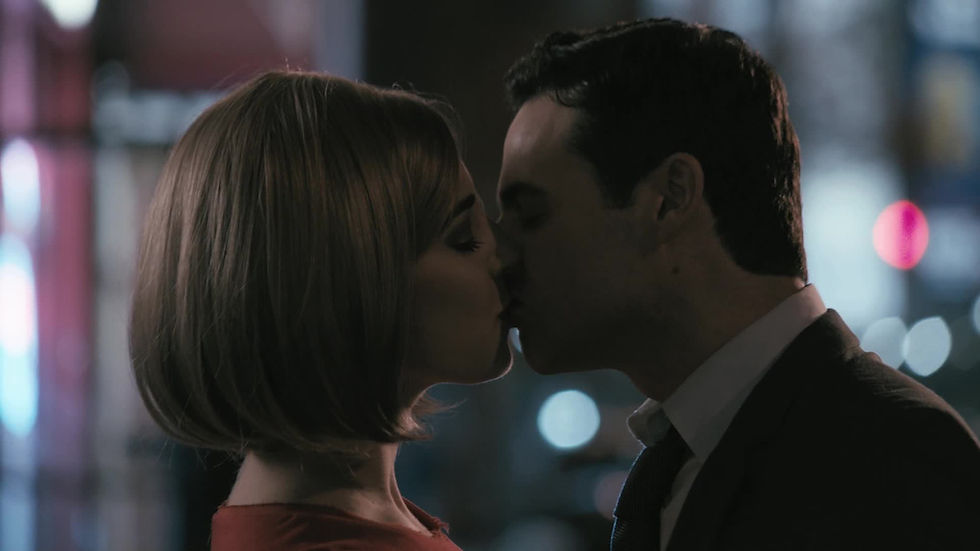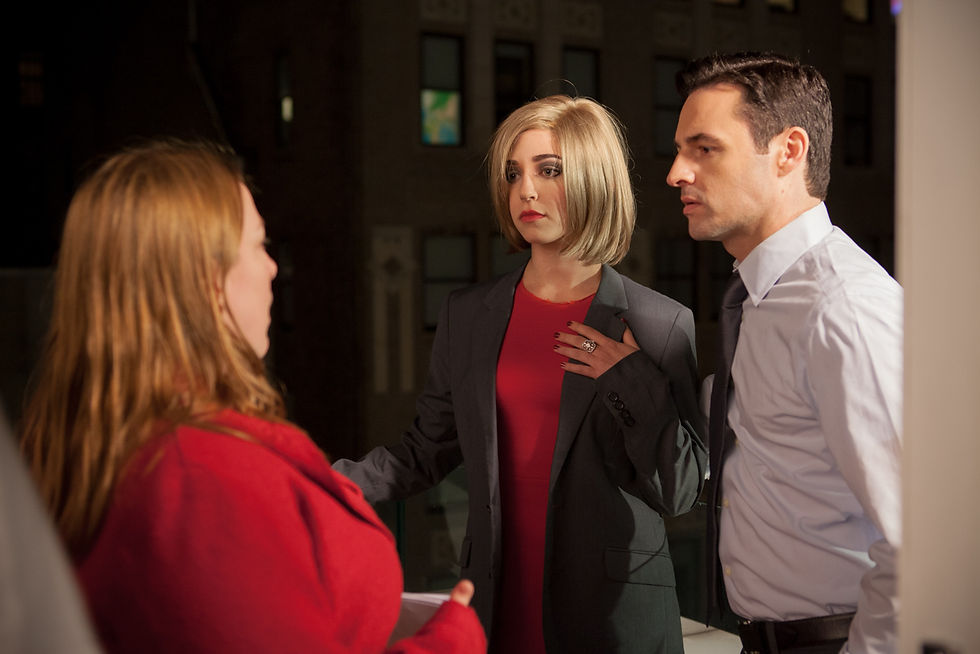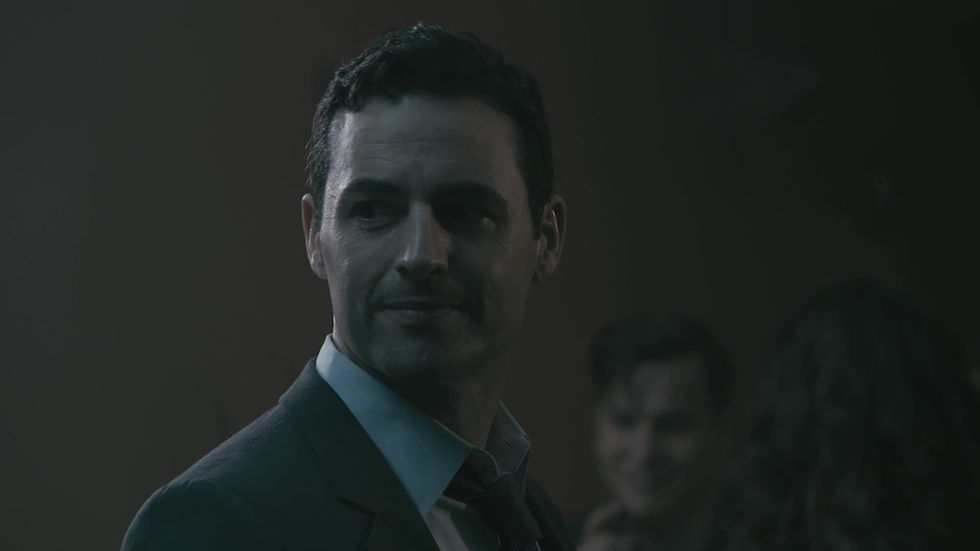"I was tired of the same old tropes for women, and wanted to do something different"
- LAFA Team
- Nov 10, 2016
- 5 min read
Joanna Strange is different. Unlike many filmmakers, especially those who make their first short film, Joanna created a unique, complicated character of a female serial killer - "Blonde". Instead of using the same old tropes for women, Joanna's character is a strong woman who is dangerous and vulnerable at the same time. Blonde is on her way to kill, but is also looking for love.
Blonde, Joanna's debut film, was selected by our lead judge, Mr. Jeff Melman, as the Film of the Month winner (October 2016).
We asked Joanna to join us for an interview about her film, and share some of the challenges and thoughts she had while creating this outstanding short.
Blonde - Official Trailer
What inspired you to write Blonde? Was there a specific event or character in your life that seeded the idea for this story?
I wrote Blonde first as a short story in grad school for a friends project. From there it evolved into a film. I've always been drawn to the very dark - thrillers, horror, but I was tired of the same old tropes for women - "femme fatale" or "ugly shamed woman" or "recovering from abuse" and I wanted to do something different.
How did you get into writing and directing?
I'm a theatre baby at heart - I got into it because I had this story and I knew the best place for it was a film. I can direct actors, that's not an issue, but making a film was new. All of my background in theatre has been helpful, and while film is a different medium, the process is remarkably the same.

How did Annabelle Attanasio, who won our Best Actress award for her performance in Blonde, come on board? Could you tell us a bit about the rehearsing process with the actors?
I first worked with Annie when I was in grad school at NYU. She was one of the undergrads I cast in a staging of a play I am very interested in (still). Then I worked with her off and on for the final year of my Master's on various projects. She's always been incredibly gracious and she is a beautiful actress (physically and emotionally). The film was shot directly as written. Rehearsal was short - I cast two actors I knew needed little direction (this was my first film after all), but we did rehearse for several hours before their first shoot. I like to do a lot of the rehearsal outside the set so focusing on the look and feel of the film can be the focus when shooting.
The character of Blonde is confusing. Most of the characters in short films are more "flat", but Blonde seems to have a complicated personality.
I want us to never be sure of who Blonde is. I want her to be someone we all know and, yet, someone none of us could ever imagine knowing. She is a part of us all, and she is a part of none of us. She is a part of our lives, of our background noise and of the world around us, but we will likely never meet her and never know her. Although the movie sits solidly in the suspense genre, I also wrote it as a romance. Blonde learns to love herself, others and the things that make her unique. It is a love story as much as it is anything else.

Shooting a film in a New York location can be a challenging task - can you share what was that experience like?
We shot for four days. Our crew for outdoors was actually smallish - maybe 7 people excluding talent. Being outside in NYC on the street is fine as a film crew, but working around people can be tough. Because of the time of year (late fall) we actually had few problems with people on the street (too cold!). Many years ago when I first moved to NYC I was an NYC tour guide, so I have an extensive grasp of the city and how to navigate it. That was a big help.
Your cinematographer, Tyler James Ribble, also served as the editor of the film (And did a great job!). Did you also have to wear many different hats during the production?
I made sure to reduce the number of hats I wore during production itself to just director, but, yes, prior to I was the producer, script supervisor, etc. I loved working with Tyler. As the DP, he edits in his head as he goes. He also knows what we have and what we don't, making the edit process smoother.

How long was your post production process? What was your favorite part of post?
Post was longer than it should be because I was pregnant (and sick!). it took about four months. The best part of post is hearing the music go in. Music really ties a film together.
Where there any music references that you used in order to communicate with your composer? From other films, or so?
My composer, Jeremy Mayall, is a genius. He and I have a very specific way of speaking. I tell him moods, colors, emotions and he composes to that. I identify more with that than specific musicians. I did, certainly, say "jazz" or "club" or "classic" but then we went straight to the abstract.

What are the most important things that you learned during the making of this film? Is there anything that you would do differently next time?
I don't know that there is anything I would do completely differently. Because I learned as I went, I managed to implement the lessons as I went. A line producer, someone to keep everyone on schedule, is particularly essential.
Would you mind sharing what was the total budget for this project, and how did you raise this budget?
It was about $25,000 and the majority raised on Kickstarter. That was TOUGH.

Do you wanna tell us a bit about ABV: A Beer Voyage?
ABV is my next completed project. It is a spec TV pilot (which I think has a very good chance of getting picked up!) about craft beer. Craft beer is so fascinating - when else do people leave good, lucrative jobs to throw it all at making beer? So we're telling the stories behind the craft brewers. I would love to create more thrillers! I just shot for a 72 hour film competition, the Unbirthday Party, and that film was a ton of fun. I would love to expand Blonde, but, right now, I'm collaborating on a Western!
Is there anything you'd like to add?
It's such a honor to win! Blonde is my first baby (my second baby, my son, Leo, was born shortly after). It was such fun making it. All I can say is that if you want to make a film, make one. You can find people to support you and be there for you. It's a great process.




























